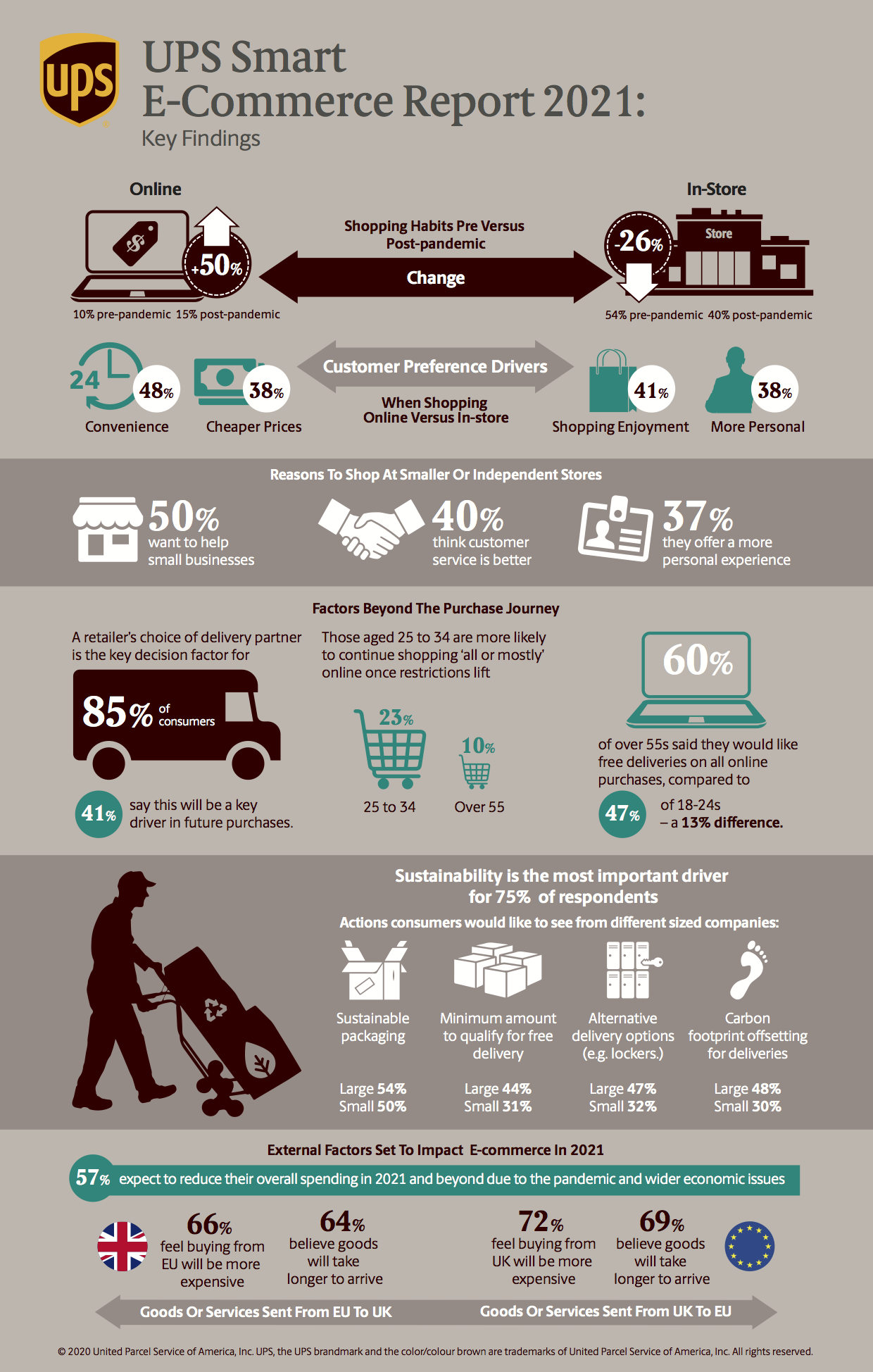European e-commerce soars during pandemic - study

Photo by Tero Vesalainen/Shuttestock.com
During the pandemic, the number of those who plan to make their main purchases online in the long run too increased by about half, and the number of those who would continue to shop primarily in stores fell by a quarter, according to the 2021 "Smart E-commerce Report" of UPS, made together with YouGov.
The research surveyed 10,000 consumers across Europe, looking to answer the question how the recent pandemic affects consumer demand for e-commerce in the coming years.
"The epidemic has accelerated digital shopping trends in an unprecedented way. The e-commerce market is increasingly competitive, with personalized customer service being the hallmark for a business to stand out from the crowd. Understanding consumers' priorities and expectations for online shopping is an important part of our mission to provide our retail partners with what matters to them and their customers," said Yannick Mooijman, UPS's regional general manager, who is also responsible for Hungary.
Popularity of physical stores on the decline
According to the results of the research, the number of consumers who intend to make most or all of their purchases online in the future has increased by about half (their number has increased from 10% to 15 %). At the same time, only about 40% of those surveyed say that even after the restrictions are lifted, they specifically want to shop only in stores, an overall decrease of 26% from the pre-epidemic period. In each product category, there has been an increase in the number of people who are more likely to try online shopping than before.
The enjoyment of shopping in-store (important to 41%) and the more personal experience (38%) continue to support personal shopping, while more convenient shopping (48%) and cheaper prices (38%) are the main drivers of online shopping.
The majority of consumers in all product categories prefer larger retailers to smaller, independent companies and online marketplaces. At the same time, 50% of consumers want to help small businesses in some way. At smaller online retailers, food (25%) and clothing and footwear (24%) were the most popular commodities.

Factors beyond purchase
For 85% of consumers, the home delivery partner of the retailer is the most important factor in making their decision, and 41% said it could be key in their decision to buy in the future. For 75% of respondents, sustainability is already the next most important factor.
Consumers want retailers to use sustainable packaging, with nearly the same 54% and 50%, respectively, expecting it from big and smaller brands. About 42% of those surveyed want traders to reduce their carbon footprint.
Attitudes towards social media
More than half of respondents (60%) feel that brands communicated too much during the pandemic, and 57% of consumers said smaller, independent brands did a better job communicating on social media.
In 2021, the number of consumers looking to shop through social e-commerce channels could increase by 15%.
Younger generations keener on shopping online
Unsurprisingly, 25-34-year-olds, often seen as the first “digital native” generation, are more likely to continue online mainstream shopping after restrictions are lifted (22%) than those over 55 (10%). People over the age of 55 (56% of them) are much more likely to buy clothes and/or footwear in-store than those aged 18-24 (34%). Consumers over the age of 55 are more likely to expect free returns if they buy from larger retailers (62%), compared to 54% for those aged 18-24. This expectation drops to 36% and 39% for independent and local businesses, respectively.
SUPPORT THE BUDAPEST BUSINESS JOURNAL
Producing journalism that is worthy of the name is a costly business. For 27 years, the publishers, editors and reporters of the Budapest Business Journal have striven to bring you business news that works, information that you can trust, that is factual, accurate and presented without fear or favor.
Newspaper organizations across the globe have struggled to find a business model that allows them to continue to excel, without compromising their ability to perform. Most recently, some have experimented with the idea of involving their most important stakeholders, their readers.
We would like to offer that same opportunity to our readers. We would like to invite you to help us deliver the quality business journalism you require. Hit our Support the BBJ button and you can choose the how much and how often you send us your contributions.








